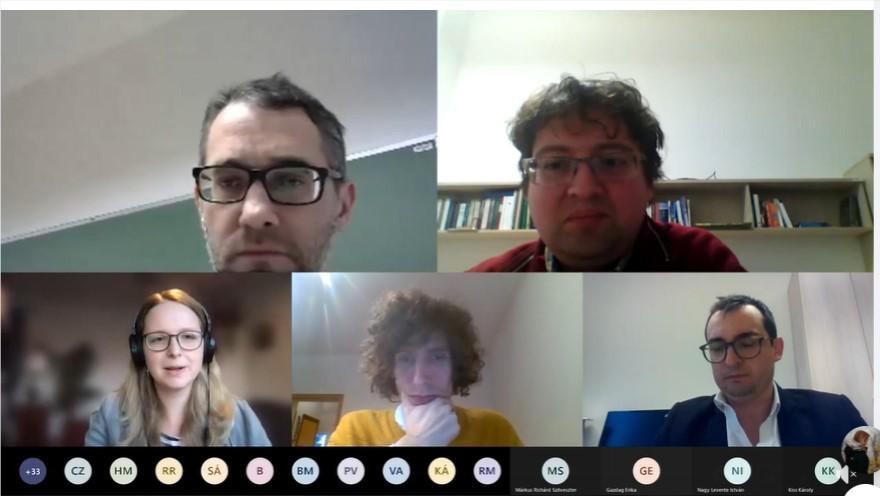Event on Environment in Central Europe
Our first English speaking online 'round table discussion' addressed the possible ways of researching the environment. We invited three speakers from different areas of expertise and from three Central European countries: Daniela Neubacher from the Institute for Danube Region and Central Europe, Miha Kozorog from the University of Ljubljana, and András Vadas from the Loránd Eötvös University of Budapest.

Responding to the opening question about how the sense of crisis influences research questions, Dr. Vadas stressed that historians cannot completely distance themselves from the ongoing events when it comes to the construction of dams or contests over water bodies and sharing the power of rivers. Yet, for him, this does not mean that environmental historians are environmentalists. Ms. Neubacher brought up the issue that the environment has become a trending approach in all fields and that it is always important to keep a distance from trends. She started researching the history of the protest against the Nagymaros-Gabcikovo Waterwork as a history of a movement and not as an aspect of environmental history. Dr. Kozorog offered that today actual local experience and the power of trends may influence research questions at the same time.
When it came to the question of Central Europe, Daniela Neubacher argued that in the 1980s there was much more cooperation across the Iron Curtain and political boundaries than one would think based on the political situation. She felt it important to note that collaborations were not the outcome of pre-existing interpersonal contacts but a common agenda to foster the idea of a borderless responsibility and also of a shared Central European space. András Vadas also remarked that the history of the waterworks is a profoundly Central European story that involved the contemporary Austrian state as well besides the Hungarian and the Czechoslovak regime.
After Miha Kozorog's intervention about borders and socio-natural sites, the discussion centered on the question of the future of such territories in light of the African Swine Fever Virus. The panelists agreed that in these very years people have started to think about how climate change would change their life. It was also a common understanding that a new sense of solidarity has to come as a result and that Central Europe with its interconnectedness is an area where this has a chance to take shape.
Please watch the recording on our Facebook site by clicking here.